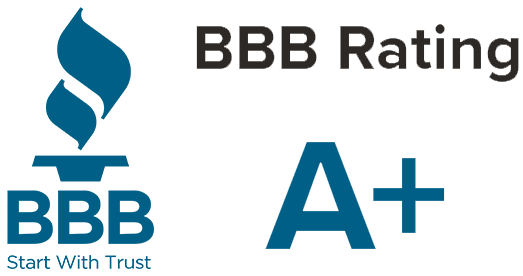The Difference Between an Interim CFO, Part-Time CFO, & a Fractional CFO
By TED ROSE, ROSE FINANCIAL SOLUTIONS
A CFO can be one of the most significant contributors to a company’s success and should be considered an essential position within every business. An excellent CFO not only offers fresh perspectives and strategies but also significantly enhances a company's financial health. This ensures that business owners can confidently entrust their financial interests to adept professionals skilled in devising new strategies, managing cash flows, conducting financial planning, and unearthing new opportunities through a thorough analysis of financial strengths and weaknesses.
Businesses today now have access to many different types of CFOs. Even smaller firms that normally couldn’t afford a full-time CFO now have access to CFO-level expertise that can transform the ways they do business.

This evolution has introduced various CFO engagements, including interim, part-time, and fractional roles, each catering to different organizational needs and scales. To better understand the different types of CFOs, let’s look at the differences between interim, part-time, and fractional CFOs.
What Is an Interim CFO?
An interim CFO is not a part-time position but rather a full-time CFO (either employee or contractor) who steps in to fill the CFO position when empty and stays until the position is filled. If a CFO has departed the position, an interim CFO steps in for a defined period of time on a full-time basis. For example, an interim CFO could come on board for a term of three months or a half-year and not become a long-term employee of the company.
The interim CFO performs all of the duties and responsibilities of a traditional CFO for a provisional or temporary period to fill the gap left by the departure of the in-house CFO until the CFO position is filled with a long-term employee.
What Is a Part-Time CFO?
A part-time CFO is an individual that works less than full-time but enough to fulfill the duties and responsibilities of a CFO for the company. A smaller company might hire a part-time CFO to work several days a week as an employee or independent contractor.
When not dedicated to one specific company, some part-time CFO’s can extend their services to other businesses, thereby maximizing their impact across the industry by sharing insights, strategies, and best practices gleaned from a broader spectrum of operational environments. This flexibility makes the part-time CFO role an attractive and pragmatic solution for companies in growth phases or those needing strategic financial guidance without the overhead of a full-time executive commitment.
What Is a Fractional CFO?
A fractional CFO is a professional who works full-time but serves multiple companies–providing their financial expertise and services. A smaller company, which may not require the continuous services of a full-time CFO either due to limited workload or budget constraints, opts for a fractional CFO. When not dedicated to one specific company, a fractional CFO can extend their services to other businesses, thereby maximizing their impact across the industry by sharing insights, strategies, and best practices gleaned from a broader spectrum of operational environments.
Fractional CFOs have the knowledge and experience of an in-house CFO and perform all of the same services. A smaller company that only requires a CFO once a week will hire a fractional CFO to help them:
- Raise new capital
- Navigate financial challenges
- Enhance financial strategy
- Grow
- Help through an audit
- Implement new systems
- Put in place KPIs
- Handle regulatory filings
- Work with investors and lenders

In some cases, a fractional CFO might be hired to perform a very specific task, such as an owner’s exit strategy, or navigate a particular financially delicate situation.
The most significant benefit of hiring a fractional CFO is cost savings. A company has access to the expertise of a seasoned CFO without the high cost of having a full-time, in-house executive. With fractional CFOs, smaller companies have access to the same level of talent as enterprise-size businesses.
What sets ROSE apart from solo practitioners is our collaborative approach. At ROSE, we boast a team of Fractional CFOs, supported by an FP&A team of controllers and finance professionals. This financial team of professionals is supported by standardized systems and methods that ensure a more comprehensive and well-rounded financial support system for your company's needs. ROSE provides a comprehensive CFO and Financial Management Solution.
Which CFO-Type Fits Your Business Best?
Understanding the unique roles and benefits of fractional, interim, and part-time CFOs is key to selecting the right financial leader for your business's specific phase and needs. Each type offers distinct advantages suited to various organizational requirements, ensuring your choice aligns with your current goals and challenges.
Engagement Structure
Engagement structure refers to the terms at which the CFO is brought into the company. For instance, if the company brings in an interim CFO, there would be a guarantee as to the number of hours and how long the CFO will work for the company.
Interim CFOs expect to know how long they will be engaged with the company, and it is common for companies to define a minimum amount of time that the interim CFO will work for them in a full-time capacity. The company might define a minimum period of three months and then a month-to-month arrangement thereafter. Typically, a set end date is anticipated.
A part-time or fractional CFO often have no such guarantee of a minimum time period and would commonly be on a month-to-month arrangement or, if an employee of the company, at the will of the business owners.
Time Commitment
Commonly, an interim CFO is brought on as a full-time employee with a specified term to be in the position.
A fractional CFO will typically work on a month-to-month basis for a negotiated number of hours, normally below 20 hours a week. During times that the company is busy or has additional needs, the fractional CFO would temporarily increase their work hours to accommodate the business’s needs.
Similar to the fractional CFO, a part-time CFO would work a negotiated number of hours or days either as an employee or contractor and have the potential to increase the time commitment as necessary to meet the needs of the company.
Scope of Responsibility
An interim CFO is brought into a company to perform the full scope of duties of a full-time, in-house CFO until a new CFO is hired.
Part-time and fractional CFOs might perform the full scope of duties of an in-house CFO or might be brought in to perform specific duties. For instance, they might be hired to manage an audit, provide advice or coaching to the VP of Finance, or develop a strategic plan.
Get started with ROSE®
Looking for a simpler way to manage your finance, accounting, and tax needs?
Experience the difference that our expert professionals and leading-technology can make.

Business Size and Type
It is common for larger middle-market-sized businesses to have an in-house CFO if there is a need for a full-time employee. In the event the CFO departs, these companies will be the ones that hire an interim CFO.
For smaller businesses,
in start-up mode or early stage, there might not be a budget or need for a full-time CFO. These companies might have all of their needs met by a CFO who works for them one or two days a week, and some might only need their CFO several days a month. In such cases, the services of a fractional or part-time CFO are ideal. As a company scales, it is ideal that they are able to scale the CFO and Financial Management Solution until a full-time role is necessary.
Cost Structure
An interim CFO will typically be paid a monthly rate for the length of their service, whereas a fractional CFO is commonly paid by the hour with a minimal number of hours negotiated as a retainer. If a part-time CFO is employed by the company, that person is often paid hourly for the amount of hours they are required to work each week. CFO and Financial Management Solutions are usually priced on a fixed monthly fee based on responsibilities assumed. Unique and non-repetitive activities are generally priced on an hourly basis above the fixed monthly fee.
Rose Financial: Your Outsourced CFO Solution
For many businesses, especially startups and small to mid-market enterprises, the decision to engage a fractional CFO offers a strategic advantage. This approach provides access to the high-level financial expertise necessary for critical decision-making, strategic planning, and navigating financial complexity, without the full-time salary commitment of a traditional CFO.
Rose Financial provides fractional CFO services that help business owners gain financial clarity, make informed business decisions, and achieve more. Owners have access to trusted advisors that help them succeed in their journey through expert strategic financial management. ROSE supports their interim CFOs with a FP&A team that includes Controllers and Finance professionals, providing a comprehensive CFO and Financial Management Solution. This ensures cost-effectiveness and that clients can receive access to support when needed.
Start a conversation with Rose Financial today to see how your company will advance to the next level with a fractional CFO and Financial Management team in its corner.

Ted Rose
In 1994 Ted Rose founded Rose Financial Solutions (ROSE), the Premier U.S. Based Finance and Accounting Outsourcing Firm. In 2010, the Blackbook of Outsourcing named ROSE the #1 FAO firm in the world based on client satisfaction. As the president and CEO of ROSE, he provides executives with financial clarity. Ted has also acted as the CFO for a number of growth companies and assisted with various rounds of financing and M&A transactions.
Share this article:
Visit Us On:




